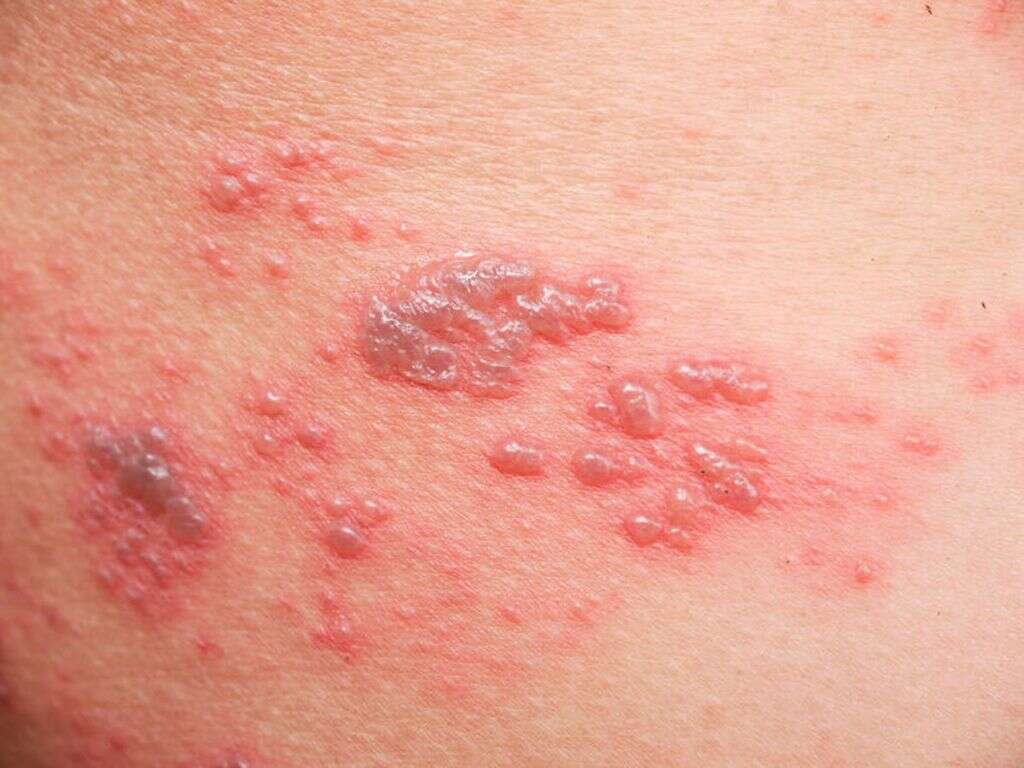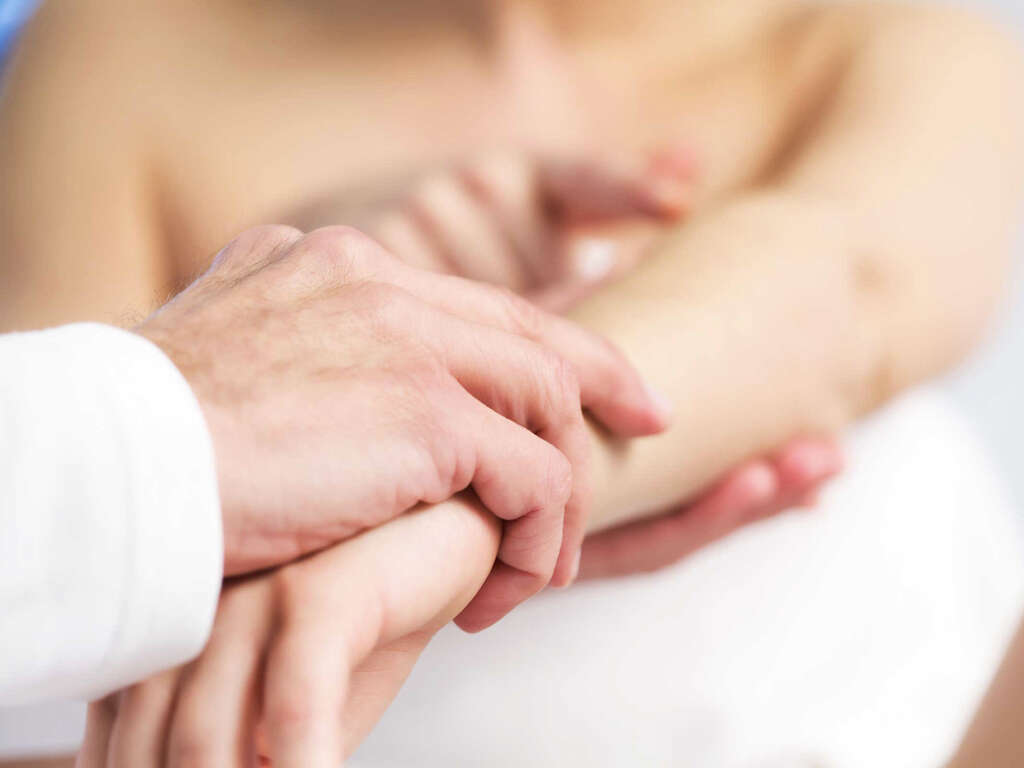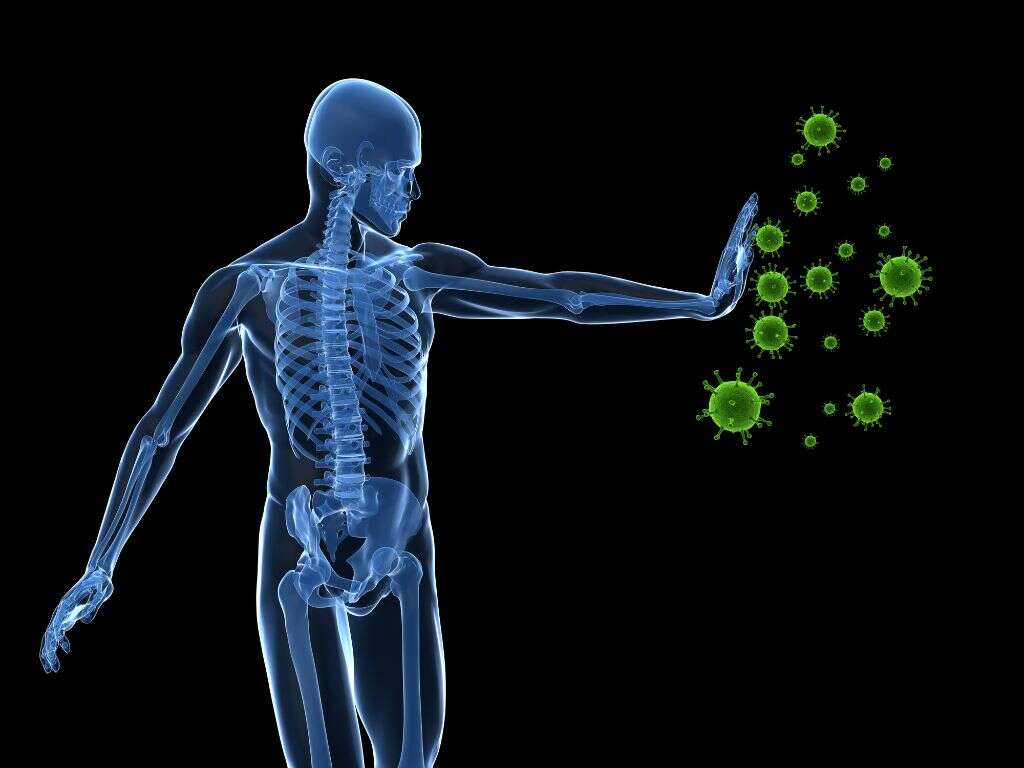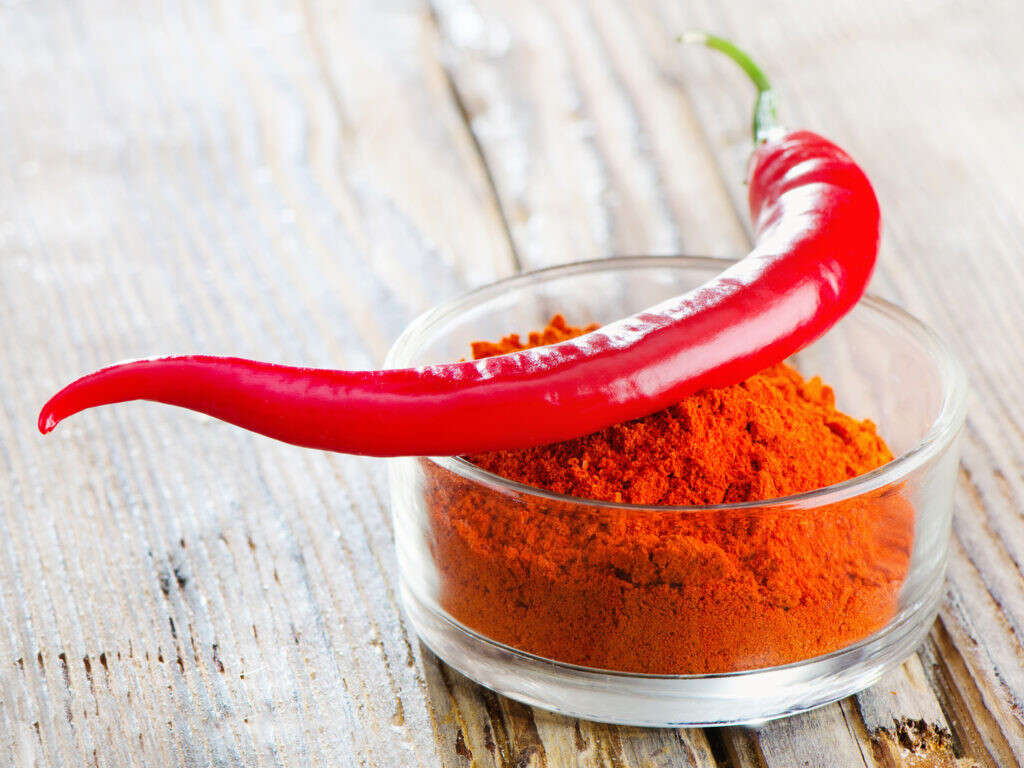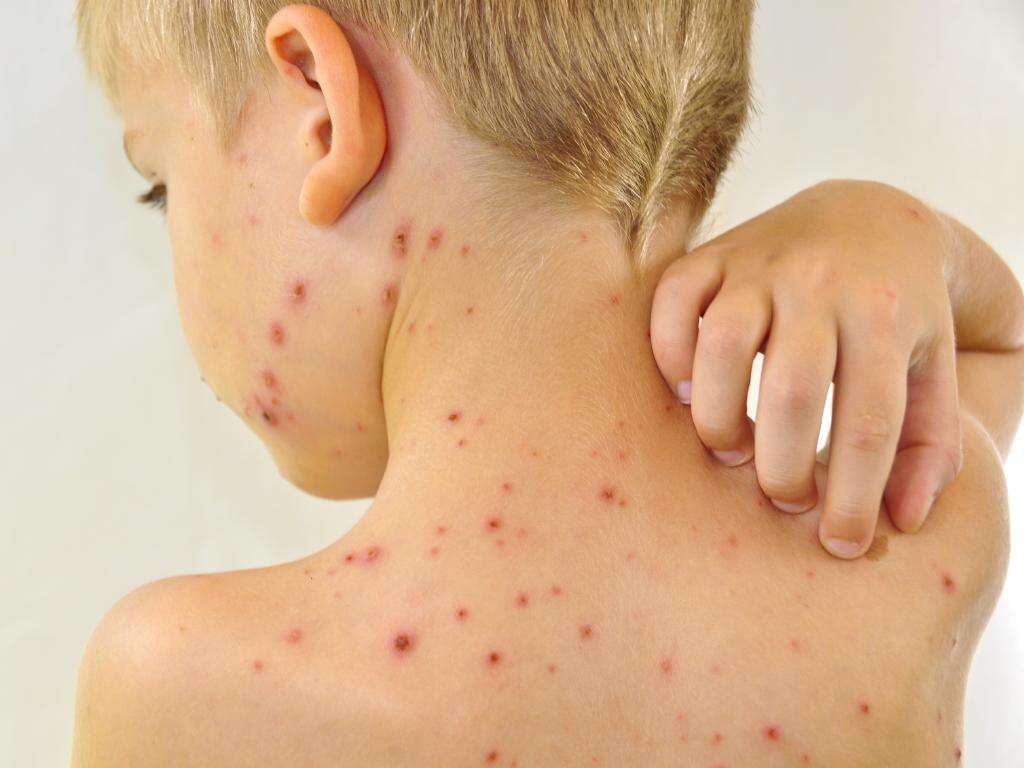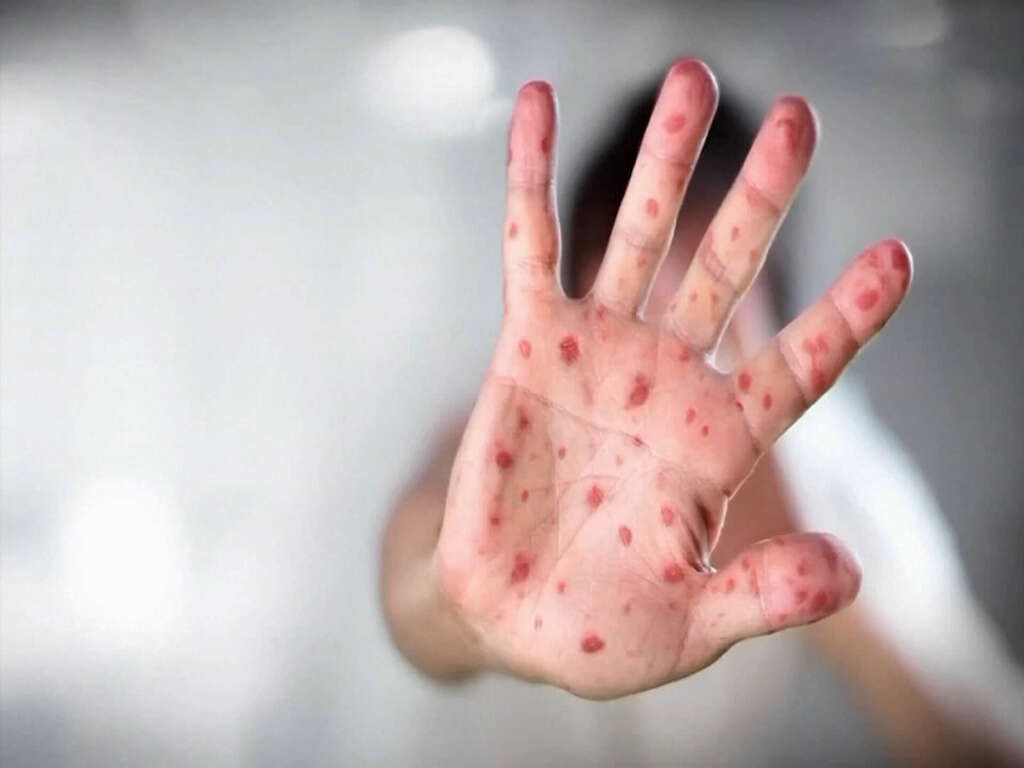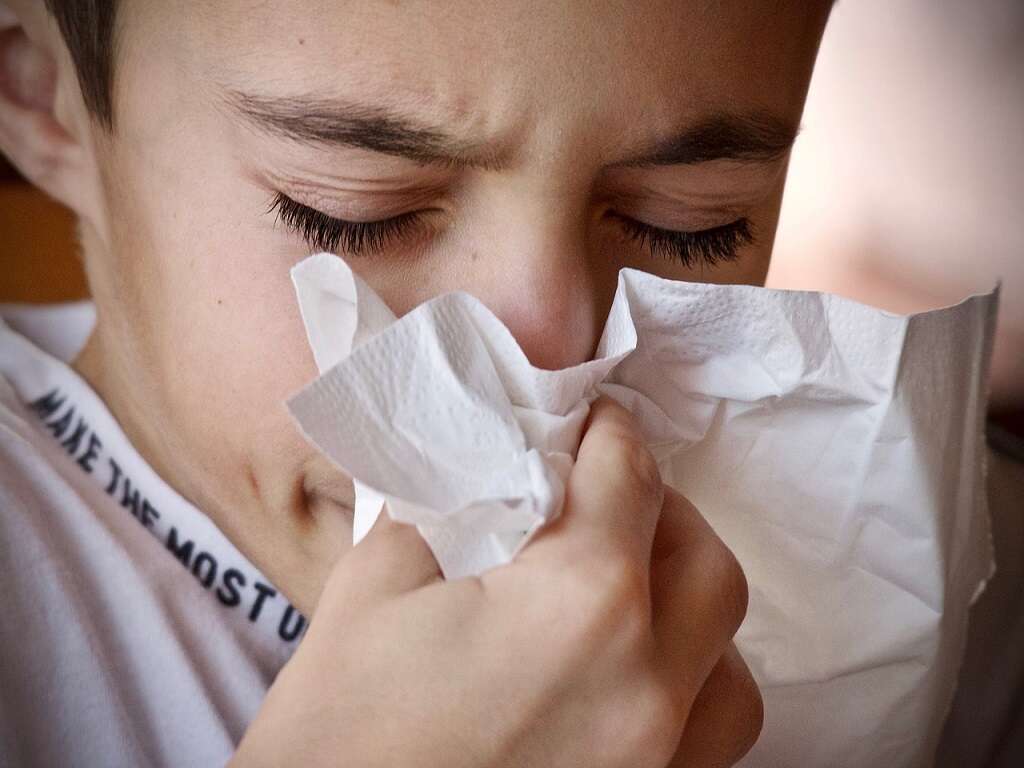What Is Varicella?
Varicella, also known as chickenpox, is caused by the virus Varicella-zoster. People who have had chickenpox can also develop shingles later in life, caused by a reactivation of the same virus.1https://www.mayoclinic.org/diseases-conditions/chickenpox/symptoms-causes/syc-20351282 Varicella is transmitted by inhaling respiratory droplets exhaled by an infected person2https://www.hopkinsmedicine.org/health/conditions-and-diseases/chickenpox or by coming into direct contact with the lesions that form when the characteristic rash develops.
Chickenpox is extremely contagious and people who have not already had it or have not been vaccinated against it are at high risk for developing the signs and symptoms of the disease. Furthermore, symptoms can range from mild to severe, depending on many factors (i.e. integrity of the immune system of the host). Sometimes life-threatening complications can develop. Shingles is a potential long-term complication of chickenpox, which, though not life-threatening, can cause severe illness and complications of its own.3https://www.medicalnewstoday.com/articles/154912}
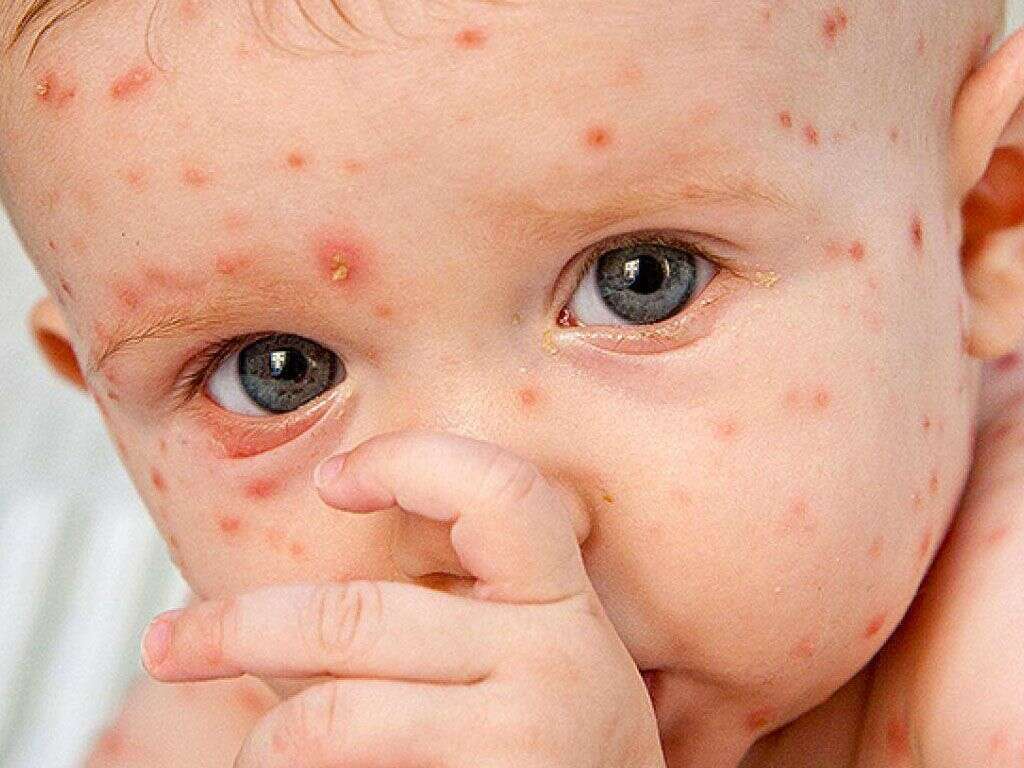
1. Prevalence
At one point, chickenpox was an extremely common childhood illness. Because of the highly contagious nature of the disease, it spread quickly in schools and other environments where children assembled. In 1995, a chickenpox vaccine was approved for use in the US.2https://www.hopkinsmedicine.org/health/conditions-and-diseases/chickenpox
Thankfully, the vaccine is highly effective at preventing varicella, and it has undergone multiple studies showing it to be safe.1https://www.mayoclinic.org/diseases-conditions/chickenpox/symptoms-causes/syc-20351282 The prevalence of the infection has decreased dramatically since then.
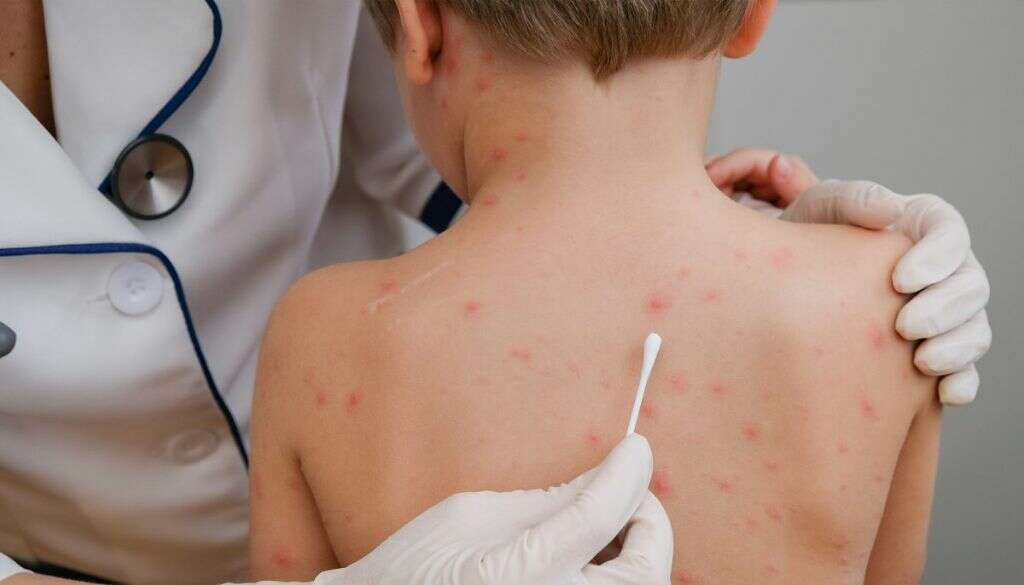
2. Signs and Symptoms
The most characteristic sign of chickenpox is an itchy rash that occurs in three phases. Small raised bumps called papules that are pink or red gradually turn into small blisters filled with fluid.1https://www.mayoclinic.org/diseases-conditions/chickenpox/symptoms-causes/syc-20351282 Both phases are easily recognizable by appearance, and the rash is widespread over the body.2https://www.hopkinsmedicine.org/health/conditions-and-diseases/chickenpox The third phase is drying and scabbing of the blisters.
Chickenpox also causes symptoms, such as fever, headache, fatigue, malaise, and loss of appetite. These can start appearing a few days before the rash emerges.

3. Incubation and Duration
Following exposure to the varicella virus, it can take 10 to 21 days for symptoms of chickenpox to develop.1https://www.mayoclinic.org/diseases-conditions/chickenpox/symptoms-causes/syc-20351282 This asymptomatic period is known as incubation.
Once the rash appears, it remains symptomatic for approximately five to seven days.2https://www.hopkinsmedicine.org/health/conditions-and-diseases/chickenpox After this time, the blisters typically form scabs and dry up. It is only once this happens that you are no longer contagious and can return to your normal activities as you feel able.
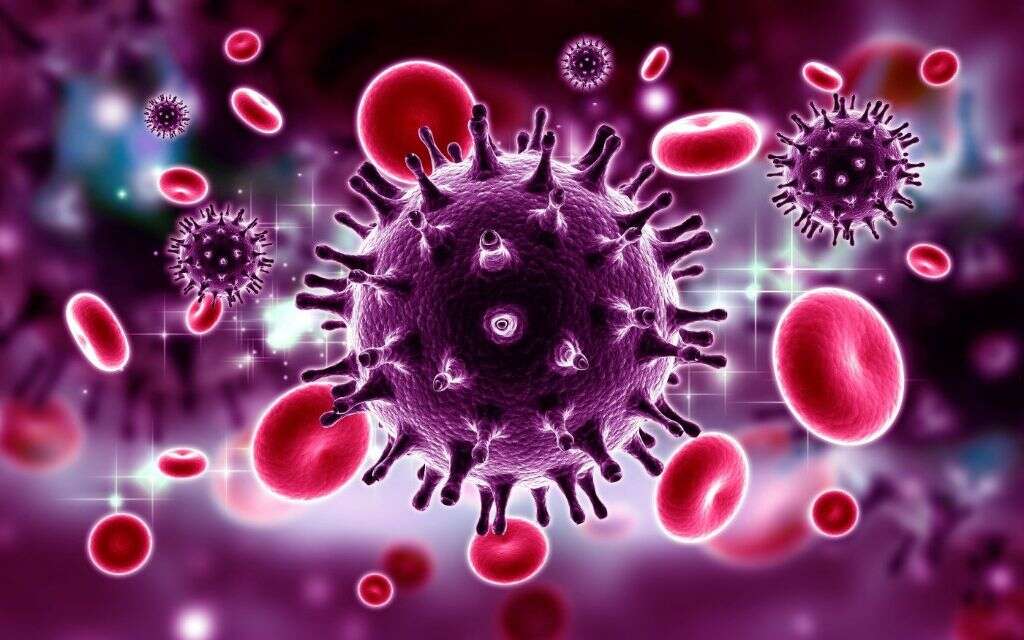
4. Complications
Between the itchy rash and the other symptoms, such as fever and malaise, chickenpox can make you miserable before it runs its course. However, most infections are relatively mild, especially when occurring in school-age children. Chickenpox infection can be more severe in adults, infants, and people with a compromised immune system.1https://www.mayoclinic.org/diseases-conditions/chickenpox/symptoms-causes/syc-20351282
Serious complications of chickenpox include secondary infections such as pneumonia and encephalitis, which is swelling of the brain.2https://www.hopkinsmedicine.org/health/conditions-and-diseases/chickenpox Scratching the blisters can also expose you to skin infections that may spread to the bloodstream, joints, soft tissues, or bones. Finally, breaking the blisters open by scratching or disturbing the scabs can also cause scarring which, though not life-threatening, it may be an unwanted complication.
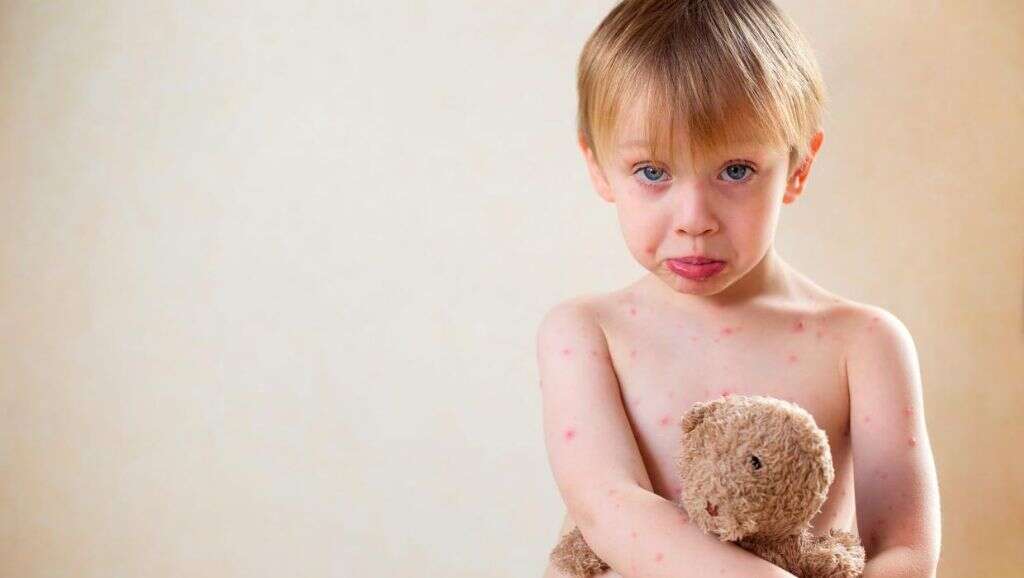
5. Risk Factors
Anyone who has not been vaccinated against varicella or has not had it in the past has a risk of developing chickenpox if exposed. Because the virus can spread through respiratory droplets, you may be exposed without any knowledge that you have come in contact with a person with chickenpox. People with a compromised immune system are particularly vulnerable to developing chickenpox complications.
If you have not had chickenpox or been vaccinated and a member of your family contracts it, your risk of becoming infected increases substantially. This is due not only to the presence of droplets in the air but the increased chance that you may come in contact with the fluid from the blisters once they break.

6. Diagnosis
If necessary, laboratory tests such as a culture of fluid from a blister or blood tests can confirm a diagnosis of chickenpox. However, this usually isn’t necessary, at least not once the rash develops. Chickenpox lesions are very distinctive, and doctors can usually identify them quickly.1https://www.mayoclinic.org/diseases-conditions/chickenpox/symptoms-causes/syc-20351282
Lab tests may be more useful if you are not sure whether you have had chickenpox in the past and are wondering whether you need to get the vaccine. If this is the case, your doctor can perform a blood test to determine whether you already have immunity.2https://www.hopkinsmedicine.org/health/conditions-and-diseases/chickenpox
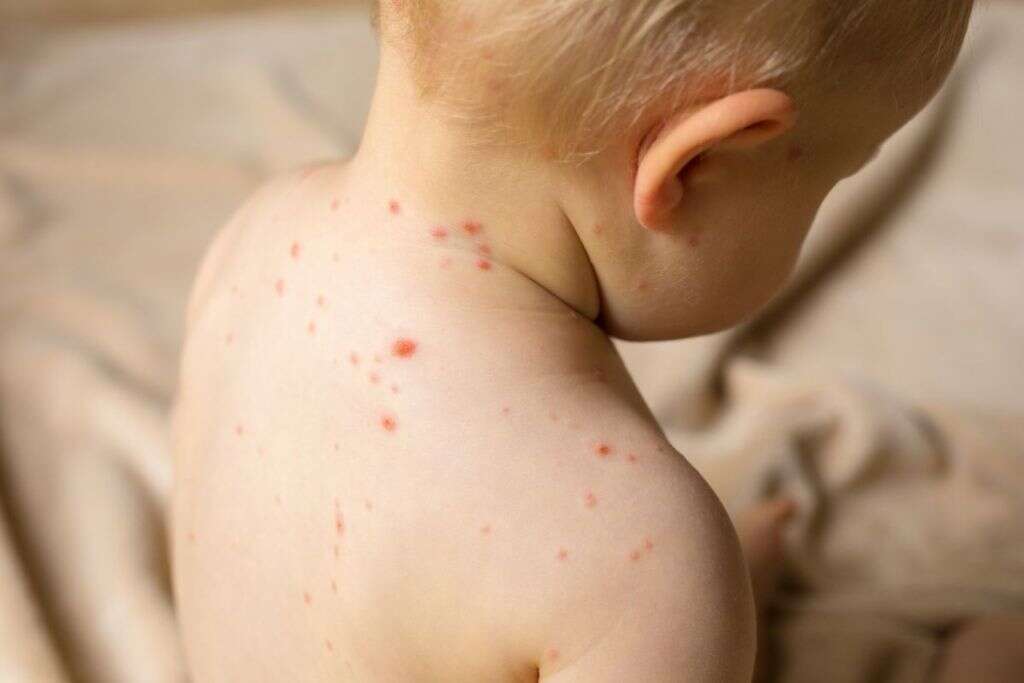
7. Treatment
If you have severe symptoms or are at particular risk for complications, your doctor may prescribe you an antiviral drug to lessen the severity and shorten the duration of the varicella infection.1https://www.mayoclinic.org/diseases-conditions/chickenpox/symptoms-causes/syc-20351282 For these to be most effective, they must be administered within 24 hours of the first appearance of the chickenpox rash.
Otherwise, treatment for chickenpox mostly consists of managing symptoms until the disease runs its course. Antihistamines, lotions, or cool baths are often recommended to relieve itching, while over-the-counter medications can be used to relieve fever. If your child has chickenpox, you should never give him or her aspirin for fever or pain relief. This can increase the risk of a serious complication called Reye syndrome.2https://www.hopkinsmedicine.org/health/conditions-and-diseases/chickenpox

8. Prevention
Perhaps the most effective way to prevent varicella infection is with the vaccine, which is given in two doses: the first dose can be administered in children at age twelve through fifteen months and the second dose at age four through six years. In the 25 years that the vaccine has been available, many people have received it as children. However, you can generally also receive the vaccine when you are an adult if you have not yet had chickenpox.2https://www.hopkinsmedicine.org/health/conditions-and-diseases/chickenpox In this case, the vaccine is administered in two doses, four to eight weeks apart.
Some people cannot receive the chickenpox vaccine. For example, it is not approved for people with a compromised immune system or pregnant women.1https://www.mayoclinic.org/diseases-conditions/chickenpox/symptoms-causes/syc-20351282
Unvaccinated people can prevent varicella infection by avoiding contact with people who have chickenpox. You should particularly be careful to avoid coming into contact with the fluid from the blisters until they scab over and keep your distance as much as possible to avoid inhaling any droplets.
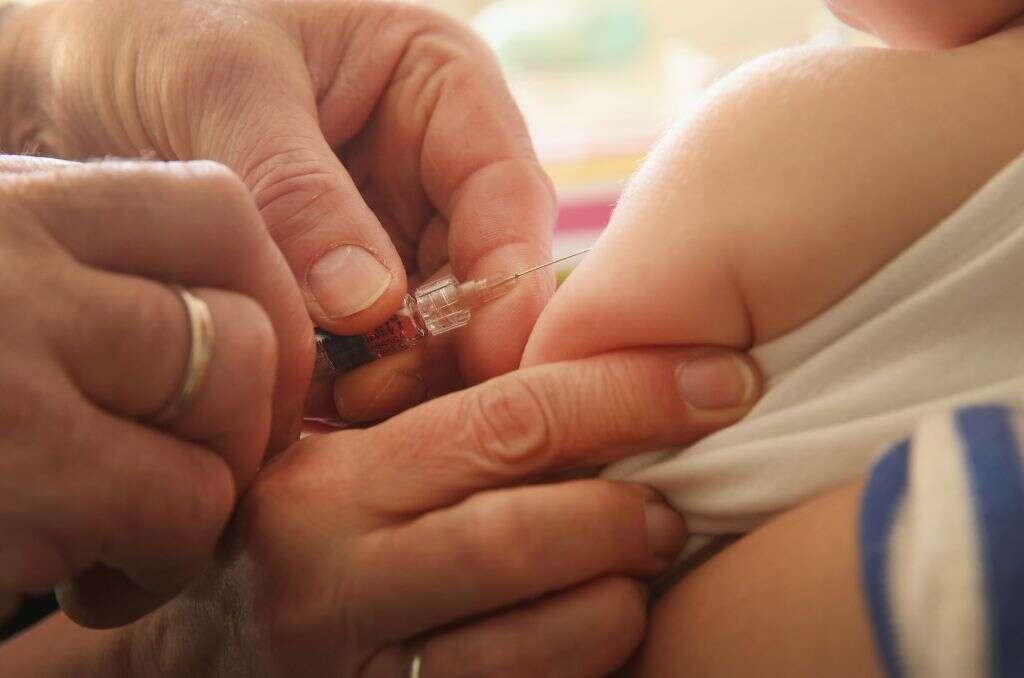
9. Prognosis
Despite the risk of complications, most people who contract chickenpox recover fully within about a week. The scabs can take longer to heal completely. People who have chickenpox once usually do not get it again.2https://www.hopkinsmedicine.org/health/conditions-and-diseases/chickenpox Rarely, a person can get chickenpox more than once.
The chickenpox vaccine usually provides complete immunity to varicella. Occasionally, someone who has been vaccinated nevertheless contracts chickenpox. However, when this occurs, the infection is typically much milder. You may not have a fever, and blisters should be scarce.1https://www.mayoclinic.org/diseases-conditions/chickenpox/symptoms-causes/syc-20351282
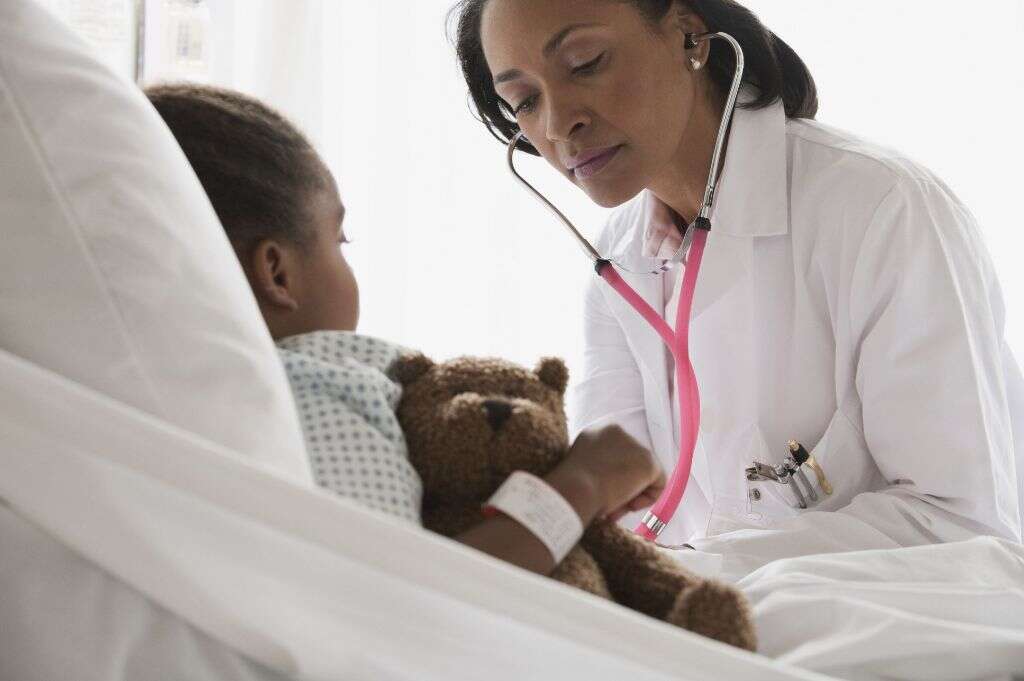
10. Shingles
Even after symptoms of chickenpox resolve, the virus does not go away. Rather, it remains dormant in your system, often for years. For reasons that are not always clear, the virus sometimes reactivates and causes shingles.3https://www.medicalnewstoday.com/articles/154912}
Shingles is an infection of the nervous system. Like chickenpox, it can cause a skin rash but usually in a more limited area of the body. It can also cause pain, fever, and headache, as well as potentially severe and chronic complications. Shingles can occur at any time following chickenpox infection but usually affects people over 50. There are vaccines specifically for shingles available for people who have already had chickenpox.
